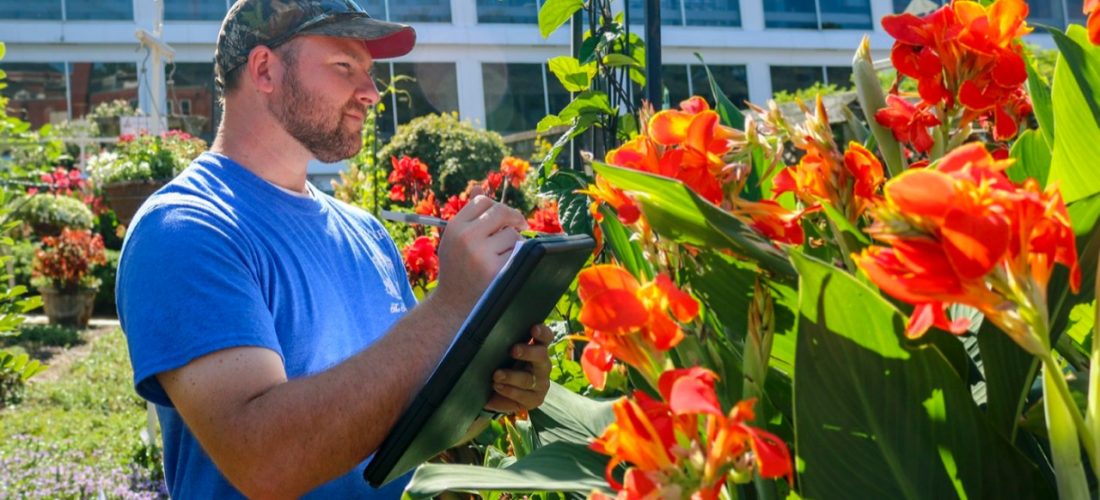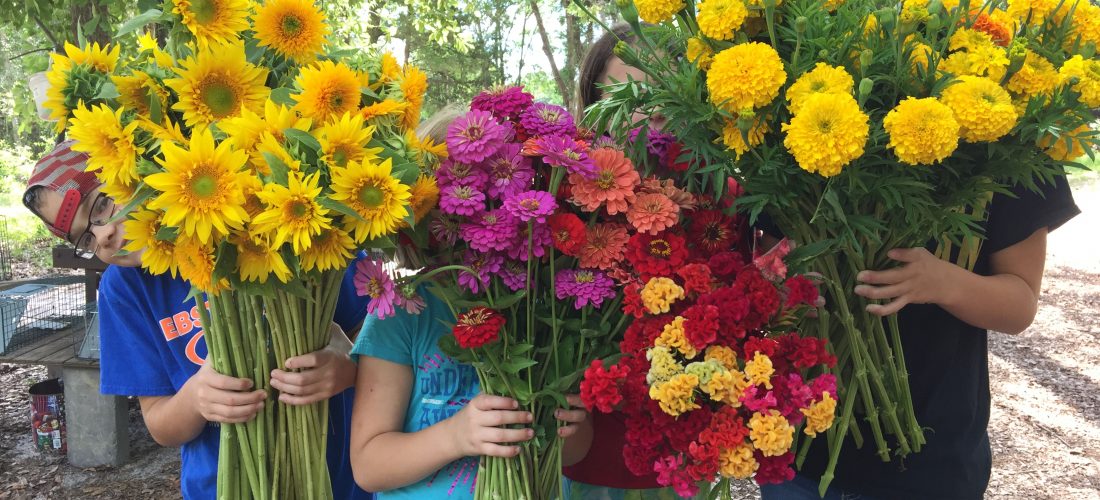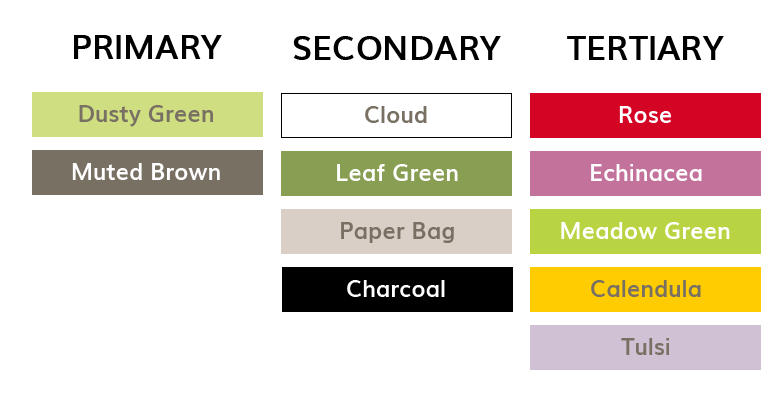I created this promo trailer to explain my team’s New Media capstone project. More of my New Media work can be found here.
UGA
Not a Garden Variety Alumnus
JournalismBrandon Coker puts new plant breeds through their paces at the UGA Trial Gardens
Among those who tend the Trial Gardens on the University of Georgia Athens campus are butterflies, bees, student workers and Brandon Coker (BSA – Agriscience and Environmental Systems, ’11).
The Trial Gardens are internationally renowned for ornamental plant research. The data collected during the hot, humid Georgia summers help the world’s top plant breeders determine what plants make it to market. The garden also serves as a living laboratory for students and a place of relaxation for the public.
“Much of the state’s economy is reliant on research conducted by UGA’s agriculture programs,” Coker said.
Ornamental horticulture in Georgia is valued at more than $843 million, according to the 2016 Georgia Farm Gate Value Report, produced by the UGA Center for Agribusiness and Economic Development. Coker sees his work as part of a larger push to keep interest in an important industry alive and well.
Coker grew up in nearby Lexington, Georgia, and has had a lifelong love of plants. He helped tend his family’s home garden as a child. He was inspired by his high school science teacher, Joe Conti, another UGA alumnus.
“I just hoped my students would walk away from my class with an appreciation for the natural world,” Conti said.
In high school and throughout college, Coker worked for Lexington-based Goodness Grows nursery under Rick Berry, who is also the mayor of Lexington. There, Coker realized his passion for plants could be a career.
While working on an associate’s degree in agricultural science from Abraham Baldwin Agricultural College, Coker gained experience on the UGA Tifton campus, where he worked with researcher and Professor John Ruter as a student worker. Now the director of the Trial Gardens, Ruter remembers his first impression of Coker as a hard worker with a positive attitude who “always greeted me with a smile, looked me in the eye and had a firm handshake,” he said.
Coker began working on his bachelor’s degree at UGA in 2009, transferring to the main campus in Athens, Georgia. After graduating, he was hired to manage a crew and work commercial properties for The Brickman Group, a landscaping company. He then went on to be a store manager for Pike Nurseries for six years.
When the position of Trial Gardens manager opened in late 2016, Ruter knew Coker was the right person for the job.
“I also knew that working a regular schedule at UGA would be better for Brandon and his family, which means a satisfied employee,” Ruter said.
Coker began managing the gardens in 2017. He’s only the third manager the gardens have had since opening in 1982. His favorite part of the job is being able to support his wife, Heather, and two girls, Lynly and Sabrina, while doing something he loves.
“I come to work happy and leave happy; everything I do revolves around my family,” he said.
Coker’s future plans involve pursuing his master’s degree and continuing to manage and improve the garden. But, “at the end of the day, I just want to grow plants,” he said.
This article was published in the Fall 2018 edition of Southscapes magazine.
Farm-to-vase flowers making a splash in Georgia this Mother’s Day
JournalismHarvesting cut flowers from your own garden can be a rewarding, cost-effective way to treat your mom for Mother’s Day. But don’t worry if you don’t have your own flowers to cut.
More and more Georgians can find locally grown flowers for their mothers without growing them in their own gardens.
Nationwide, Americans will spend about $2.6 billion on flowers this Mother’s Day, according to the National Retail Federation. That money helps fuel the nation’s $4.37 billion floriculture industry and Georgia’s $843 million ornamental horticulture industry.
While cut flowers are still a relatively small part of the state’s ornamental horticulture industry, more and more local farmers are adding cut flowers to their farmers market stalls and Community Supported Agriculture (CSA) orders. Georgia Grown, the Georgia Department of Agriculture’s agricultural products marketing program, lists more than 90 Georgia businesses that grow or market Georgia-grown flowers to the public.
Flower farms dot the landscape from the mountains to the coast and supply flower lovers directly or through local boutiques or fresh markets.
“Cut flowers are a perfect fit for most sunny gardens, and they seem to be getting more popular. People seem to like them more than before because one generates their own fresh, beautiful flowers, and they make great, casual gifts for friends and family,” said Paul Thomas, a horticulture professor at the University of Georgia College of Agricultural and Environmental Sciences.
In Georgia, Mother’s Day and graduation season create the bulk of business for local flower farms.
Benefits of buying local
More consumers want to shrink their carbon footprints by buying what they need from local vendors and farmers.
Nearly 80 percent of cut flowers in the U.S. are imported and travel hundreds of miles in refrigerated planes, trains and trucks.
“It’s good to know that purchasing something like that comes with a huge environmental footprint,” said Steve O’Shea, who owns Comer, Georgia’s 3 Porch Farm with his wife, Mandy.
Rita Williams, who owns Candler County, Georgia’s WilMor Farms with her husband, Mike, explained that people purchase flowers from their farm because they can ask them questions about the chemicals used in the growing process, and they have the answers.
“We know what they (the flowers) haven’t been exposed to,” Rita Williams said.
Purchasing local flowers also supports the local economy and communities.
“It’s how we survive,” she added.
Rita Williams knows that the local flower market in Georgia is still in its early stages, but the market share for local flowers and community of flower producers across the state is growing.
She and Mike Williams started WilMor Farms in 2015 after they were inspired by 3 Porch Farm. They felt they could provide the same types of local, sustainable blooms to south Georgia as the O’Sheas provide in northeast Georgia. The Williamses also thought it would also be a great way to teach their four children about hard work and give them a closer connection the land.
Flowers in Georgia?
Blame it on the heat, the humidity or the insects, but Georgia has long had a reputation as inhospitable to cut flower production.
But that depends on what blooms you’re growing, said Jenna Moon, who started Winterville, Georgia’s Seeds and Stems Farm with her partner, Tom Bagby, in 2017.
You won’t see tulips and fist-size roses when you shop for locally grown flowers in Georgia. Farmers here offer a mix of classic, Southern garden flowers and native flowers, or blooms acclimated to Georgia’s heat and humidity.
Ranunculus, anemones and poppies are some of the star flowers cultivated here.
Native flowers and wildflowers also steal the show from time to time, Moon said. She brings native plants into the arrangements she sells at the West Broad Farmers Market in Athens, Georgia.
Not only are native flowers already acclimated to Georgia weather and provide a habitat for wildlife, they also “have a unique beauty that isn’t always found in cultivated varieties,” said Moon. In their Mother’s Day bouquets, they’ll use classic flowers, like daisies, interspersed with hellebores, black oats and nasturtium, which will also be in their salad mix.
Because they are operating on a farm-to-vase model, local flower farmers can only provide in-season blooms, but in Georgia, the season can stretch from late winter through the summer.
What do I look for now?
When it comes to trends, Rita Williams encouraged consumers to “use what they think is pretty” and not allow their creativity to be stifled or boxed in by trends seen on social media.
“Beauty is in the eye of the beholder,” she added.
3 Porch Farm uses “whatever is relevant and beautiful,” said Steve O’Shea. This Mother’s Day, their arrangements will include species like bachelor’s button, campanula, snapdragons, poppies and peonies mixed with seed pods, native grasses, vines and tendrils.
“An emerging trend has been to get away from customers requesting specific flowers and moving more toward color palettes utilizing local and seasonal flowers,” said Steve O’Shea.
To spruce up a basic bunch, Steve O’Shea suggested gathering wild materials with a few friends.
“It’s a lot of fun to get a few friends together, buy a bunch of local flowers each, and then go forage for bits and tendrils and grasses, bring it all back to the house and create arrangements together,” he said.
More information about WilMor Farms, 3 Porch Farm, and Seeds and Stems Farm can be found on their Facebook pages. For more information about where to purchase local flowers in Georgia, visit http://www.georgiagrown.com/find/horticulture/cut-flowers.
Story originally published by UGA CAES Newswire.
Trial Gardens at UGA Social Media
Design + MultimediaIn addition to managing the garden’s Instagram account in 2018, I created the Trial Gardens’ social media logo using UGA branding and the existing gazebo element.

UGArden Herbs Style Guide
Design + MultimediaI chose typography and the color scheme for our New Media Capstone Client, UGArden Herbs. Styleguide here.
Gibson’s Little Red Caboose at Georgia Square Mall
Design + MultimediaThis video is part of a larger multiplatform piece. I filmed and used Adobe Premiere Pro to edit.
Plantapalooza 2018 at the Trial Gardens at UGA
Design + MultimediaI produced this PR video for the UGA College of Agricultural and Environmental Sciences using Adobe Premiere Pro.
Award-winning chef, farmer Dan Barber to speak at UGA on the future of food, sustainability
PRDan Barber, chef and national farm-to-table and sustainable food systems advocate, will deliver a lecture, “What Kind of Menu will Meet the Challenges of the Future? Exploring a New Recipe for Good Food from the Ground Up,” at the University of Georgia’s Richard B. Russell Building Special Collections Libraries on Tuesday, April 10.
Barber has received multiple James Beard Foundation awards and built a reputation as a chef and farmer. He is a co-owner of Blue Hill and Blue Hill at Stone Barns in New York, the latter of which was recognized by The World’s 50 Best Restaurants Academy as No. 11 on their list of the world’s best restaurants. He is also the author of “The Third Plate: Field Notes on the Future of Food” and has been featured in documentaries “Chef’s Table” and “Wasted! The Story of Food Waste.”
Long intrigued by the link between the growing conditions on farms and the flavors he coaxes out of meat and produce, Barber has made it his mission to educate the public about the close relationship between cooking and agriculture.
Barber works with crop breeders and farmers to develop better tasting, more nutritious vegetable and grain varieties by bringing together heirlooms and the disease and insect resistance found in modern varieties. He founded Row 7 Seed Company, which brings U.S.-produced, certified organic, non-genetically modified and unpatented seeds to home gardeners or small- to midscale farmers at reasonable prices.
“Athens has been known for decades as a place where great bands are born and music thrives. Today, Athens has a growing reputation for innovative chefs and good food,” said Sam Pardue, UGA College of Agricultural and Environmental Sciences dean and director. “Americans are now intently interested not just in fine food, but how their food is grown, processed and cooked. We are fortunate to have Dan Barber join us on campus to share his perspective on the future of our food system.”
The college will host the lecture from 2-3 p.m. on April 10 at the UGA Richard B. Russell Building Special Collections Library, 300 S. Hull St., Athens, GA 30602.
For more information about the lecture, contact Regina Fitzpatrick at regina@uga.edu or 706-542-5046. To register, visit https://events.attend.com/f/1383784074.
More information about Row 7 Seed Company can be found at row7seeds.com.
Originally Published on UGA College of Agricultural and Environmental Sciences Media Newswire



